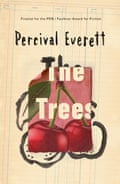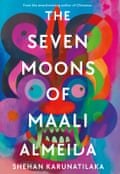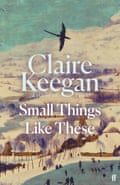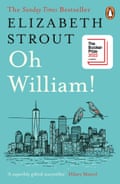 |
| Clockwise from top left: Percival Everett, Elizabeth Strout, NoViolet Bulawayo, Shehan Karunatilaka, Alan Garner and Claire Keegan |
Booker prize 2022
‘The story had been stirring in me for most of my life’: How I wrote a Booker-shortlisted novel
NoViolet Bulawayo on Glory

On 14 November 2017, things fell apart for Robert G Mugabe, the long-serving president of Zimbabwe. The strongman, who’d once upon a glorious time gloated “Only God, who appointed me will remove me,” was deposed through a sanitised military coup and replaced by his former deputy.
My novel Glory began as a work of nonfiction in response to this unimaginable drama. As soon as I could, I flew from California, where I was living, to Zimbabwe. By the time I arrived, so much had already been written about his fall that the story felt played out, and my interest wavered. Then, increasingly disappointed by the failures of Mugabe’s successor, Zimbabweans on social media began to casually refer to the country as an Animal Farm, damning the callous and clueless leadership.
The connection shook me out of my ambivalence, for that is the power of stories – Zimbabweans were able to see ourselves in George Orwell’s book, a classic written of another place, in another time. After all, the country’s politics can often feel like the politics of the jungle, layered with astounding levels of the surreal and the absurd. The deployment of Orwell by my countryfolk inspired my framing of Glory, while my colourful childhood steeped in orature – notably my grandmother’s enthralling tales of talking animals – powered the novel.
Animals allowed me to transcend the specific, and this was important – plenty were the moments it felt I was writing about the rest of the miserable world. Glory’s story of tyranny and upheaval was happening not just in Zimbabwe, but in many other countries when I was writing, and even now. That [fictional African country] Jidada was at once an invention and real would sometimes fill me with despair, but it was always Toni Morrison’s words that put my labours in context and re-charged my focus on the novel, that helped me keep the faith: “This is precisely the time when artists go to work. There is no time for despair, no place for self-pity, no need for silence, no room for fear. We speak, we write, we do language. That is how civilisations heal.”
It is my hope that Glory not only heals, but adds to the conversation about how the Jidadas of this world get free.
Percival Everett on The Trees

The Trees had been stirring in me for most of my life.
When I was perhaps 11 years old, not much older than that, I was with my father as we drove at night through rural South Carolina. We slowed to a crawl, and it turned out there was some sort of checkpoint. It turned out, as well, that this checkpoint was manned by hooded members of that esteemed American social club, the Ku Klux Klan. A large cross burned in the meadow. My father, a dentist, an agnostic, a quiet man, became even quieter. I observed that in his lap he now held a pistol that I had never seen before, a .32 I discovered as I went through his things many years later after his death. The gravity of the world was present to me at once. When our turn at the checkpoint came my father pressed the accelerator to the floor and we sped away.
My father was an articulate man, but we often spoke to each other in metaphor. We said nothing about the incident. Nothing, directly. The lessons were obvious. There were white people in the world who would kill us for our appearance. Why? If we could understand, we might be as morally and intellectually deficient as them, there was no reason to waste energy considering motives. The other lesson was that in this world we needed to be prepared and that preparation should rather be real and private than obvious and advertised.
Perhaps this novel is the pistol in my lap. More likely it is the understanding that the checkpoint is not a place to stop. My father, the quiet dentist, drove me and my sister the one block to school for a while because when he ran for public office he received telephone threats concerning the safety of his children. I didn’t know why I wasn’t allowed to walk that block to school until many years later. But I knew, this is not a safe world.
Alan Garner on Treacle Walker

Bob Cywinski and I were walking above Huddersfield. It was Monday 16 July 2012. He was a particle physicist, and I had been a classicist.
The night before, we had had one of our marathon conversations about the nature of creativity. Bob was happy with his thesis that the process of creating a novel is almost identical to that which underpins scientific methodology. Both writer and physicist try to create a consistent model that can be tested by “What if?” But Bob was hung up on the question that hounds writers: “Where do you get your ideas from?” I couldn’t satisfy him with an answer.
That next day, on the moor, Bob told me how, when he was a child, his mother had quelled him by threatening that if he was naughty Treacle Walker would get him. He later found that Treacle Walker was a tramp named Walter Helliwell; but he was called Treacle Walker because he claimed to cure “everything but jealousy”.
I told Bob to remember the time and date, because he had just given me a book. Bob was perplexed. But I reminded him of a maxim of research: “Pursue the anomaly.” That is, if something does not make sense, yet exists, what is it saying? And here the anomaly was that in the 20th century a healer-tramp should be called Treacle. The original meaning of treacle, long obsolete, came from the Classical Greek thēriakē, meaning antidote.
That was the start. But where was the story?
All writers have to find their own answer. For me it is Arthur Koestler’s dictum “Soak and wait”. I must avoid trying to write, because that first flash will not take hold until it is fed by another unsought moment. The flint must have its tinder.
That moment came when I was sitting in a dentist’s waiting room. Outside I heard something I had not heard since childhood: the cry of a rag-and-bone man: “Ragbone! Ragbone! Any rags! Pots for rags! Donkey stone!” And I “knew” he was Treacle Walker.
Within days, on Saturday 7 July 2018, I began to write. It arrived in chunks, effortlessly, like taking dictation, and was finished on Tuesday 4 August 2020.
I was compelled to write Treacle Walker because, I realise now, it holds the essence of my own story. It is an extension, in mythic form, of the memoir Where Shall We Run To?
Shehan Karunatilaka on The Seven Moons of Maali Almeida

There’s a Sri Lankan cartoon done after the 2004 tsunami, of Europeans drinking champagne from their private villa surveying the carnage and devastation. One says: “I think what this country needs … is a literary festival.” Around 2009, when Sri Lanka’s 30-year war was ending, and warring factions argued in the comments section about how many innocents were sacrificed, and by whom, I thought what Sri Lanka really needed was a good ghost story. It seemed that only the dead could offer plausible explanations of the Sri Lankan tragedy, as the living clearly did not have a clue.
Not much of a premise, but it got me collecting ghost stories and researching tragedies, for the only thing that was clear in 2009 was that writing about calamities past was far safer than writing of catastrophes present or looming. The only problem was, there were too many ghosts and tragedies to choose from.
I began by attempting a slasher horror called Devil Dance set on a bus full of aid workers driving across Sri Lanka’s tsunami-ravaged coast. Could’ve been a great story, if I knew how to write it. All that survived the wreckage of several aborted drafts was the ghost on the bus, a dead journalist called Maali Almeida, a victim of the slaughter of 1989.
I put it away, distracted myself with short stories, had a couple of children and wrote a couple of books for them. By the time I returned to Maali Almeida, he had transformed into a war photographer, telling his story to me in the second person, while he gambled on cards. I followed that voice wherever its ramblings took me, and just before the pandemic I had more pages, plots and ideas than one book could hold.
Publishers in India were enthusiastic, publishers elsewhere were perplexed. Chats With the Dead came out in the subcontinent in January 2020. We managed to squeeze in a Colombo launch event before everyone went indoors for 18 months.
I spent those months rewriting the book with my UK publisher Natania Jansz, and each revision revealed a fresh layer of story, and every edit made the book less impenetrable for readers unversed in Sri Lankan folklore or tragedy.
In the month of the book’s release, Sri Lanka’s street revolution invaded the world’s front pages and The Seven Moons of Maali Almeida was longlisted for the Booker prize. Readers and reviewers find it funny and magical, even though I thought I was writing a serious and realistic ghost story. I accept the compliments and the attention with gratitude, and take notes on Sri Lanka’s precarious present. Now old debts are being serviced by new ones, and a population on the brink of poverty is welcoming the distraction of our Asia-conquering cricket and netball teams. Could it be that what this country really needs is a Booker prize?
Claire Keegan on Small Things Like These

In 2005, I read a newspaper article about the Ferns report, a government inquiry into the allegations of clerical abuse in the Catholic church. After subsequently reading much of the Ferns report itself and victims’ testimonies, I began to feel preoccupied with the question of why so many people who knew about these abuses did or said little or nothing – and then one day found myself writing a story about a boy who goes out one cold morning to make a delivery of coal with his father and finds a boy, much his own age, locked up in the coal shed. The coalman just closes and locks the door and goes on to make the next delivery, saying nothing.
In 2013, the outcome of an inquiry into the Magdalene laundries was published, and was all over the news here in Ireland and abroad. The short story I’d written was told from the son’s point of view, but in subsequent drafts the father’s perspective overtook the story as I wondered how he would or could carry on, if or how he’d still be able to regard himself as a good father. And that eventually turned into Small Things Like These. I’m embarrassed to think about how long it took to write this book. My drafts fill two large boxes. The final drafts were completed during lockdown.
Nothing comes easily. If you want to compose something original and meaningful about what it means to be alive and say it freshly in the English language – or in any language – it’s bound to be difficult. And I’m not sure that writing itself comes from a place of importance. What is seemingly unimportant (which is often mistaken for what is ordinary) may be more likely to fodder good fiction.
I’ve never set out to write a didactic work but of course it’s an important story to tell: incarcerated women and girls forced to labour without reward in these institutions, often giving birth under dire circumstances, their babies taken. Hundreds of women and children died in these places, perversely under the guise of Christianity. Our lack of sex education, ingrained sexual backwardness and lack of affection destroyed and damaged so many lives. (John McGahern once wrote that it was more acceptable to hit someone than to kiss in public.) The stigma of the “unmarried mother” remains. One wonders where the unmarried fathers went? We created a theocracy whose power was overwhelming, and people had so little and could easily lose everything. I’d like to think that this novel may have something to say about our little republic and how 20th-century Ireland and our brand of Catholicism did not favour the brave – but it is first of all the story of a coalman with a wife and five daughters, an account of this man’s breaking down in the weeks leading up to Christmas and going from door to door.
Elizabeth Strout on Oh William!

The idea for Oh William! came to me one day at a rehearsal with the actor Laura Linney, who was getting ready to do a one-woman show of My Name Is Lucy Barton in London. On this particular day, the director said something quietly about [Lucy’s ex-husband] William, and Laura took a step forward, raising her glasses to the top of her head, and she murmured something (I cannot remember what) about William, and at that very moment this book was born. I saw big letters above her head: “OH WILLIAM!” And then I knew I would write about this man. What a thing that flash was.
In My Name Is Lucy Barton, Lucy deliberately sidesteps talking about her first husband, although we know his name is William and that his father was a PoW from Germany who came to Maine to work in the potato fields.
I was surprised, as I wrote Oh William!, how much I already knew about William: that his mother had been needy, which is why he took the job at Lucy’s college to get away, and that his father had died when he was 14. The fact that his mother had had another baby, years earlier, came to me because a friend of mine had just found out disturbing details of his own past on an ancestry website, and I kept hearing more and more stories like that. But what surprised me the most about this book when my husband and I were driving around Maine – we took the exact trip Lucy and William took – was the fact that William’s mother had, herself, come from terrible poverty. This was a huge surprise to me, and yet it made a great deal of sense.
I was worried, as I frequently am, about how the book would end. But I kept telling myself: You will discover it. And I did. I almost don’t remember writing the book, what I mostly remember is the trip my husband and I took and how I recorded everything I saw through Lucy’s eyes in scraps all over the place. Writing a book is never easy, and this one was not as well. But my sense, once it was finished, was that of watching a tiny fish slip out of its mother. Having grown up on the coast of Maine I often saw fish that we caught give birth; amazing how a fish would slip out, so whole. And this book felt like that.


No comments:
Post a Comment